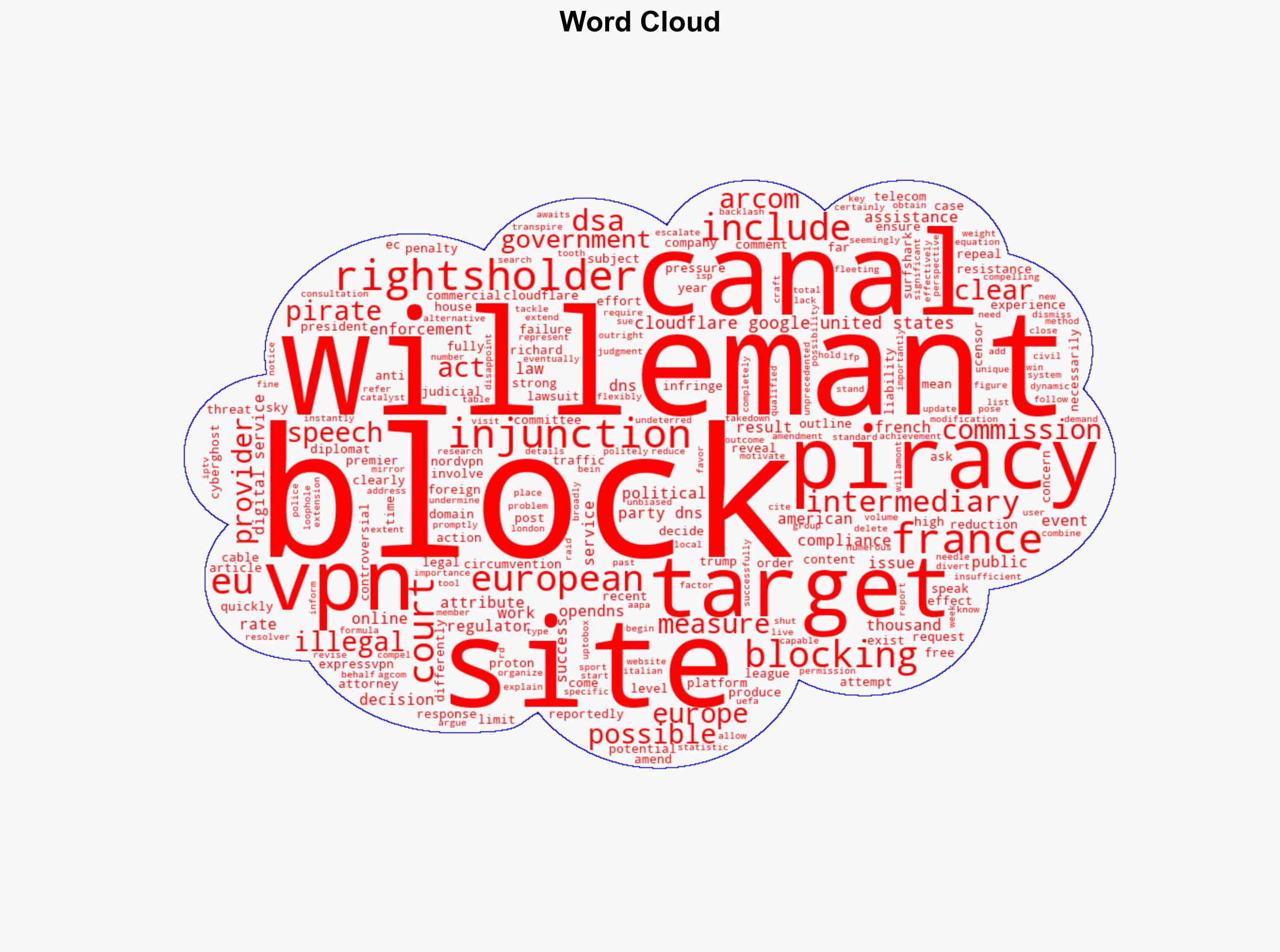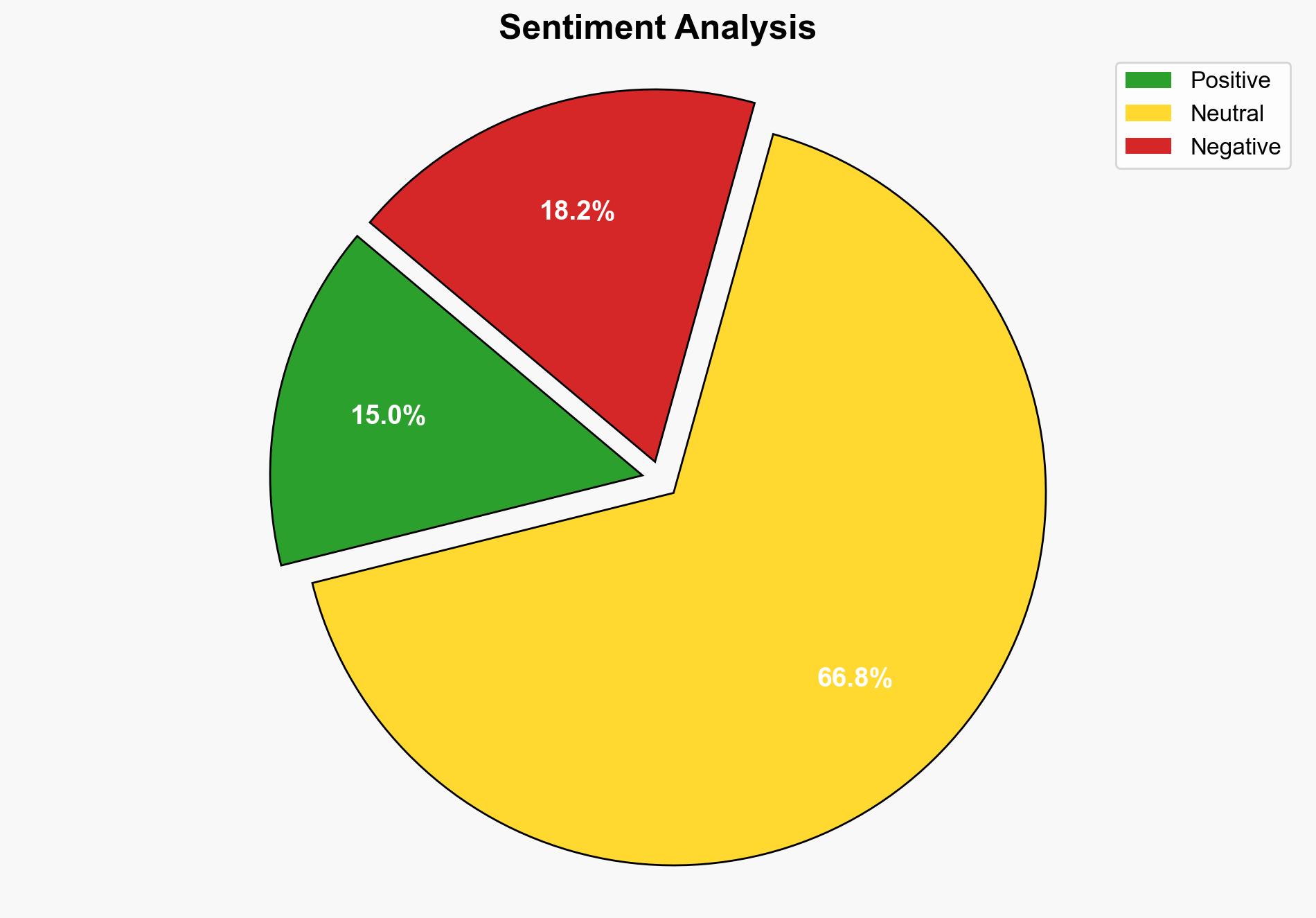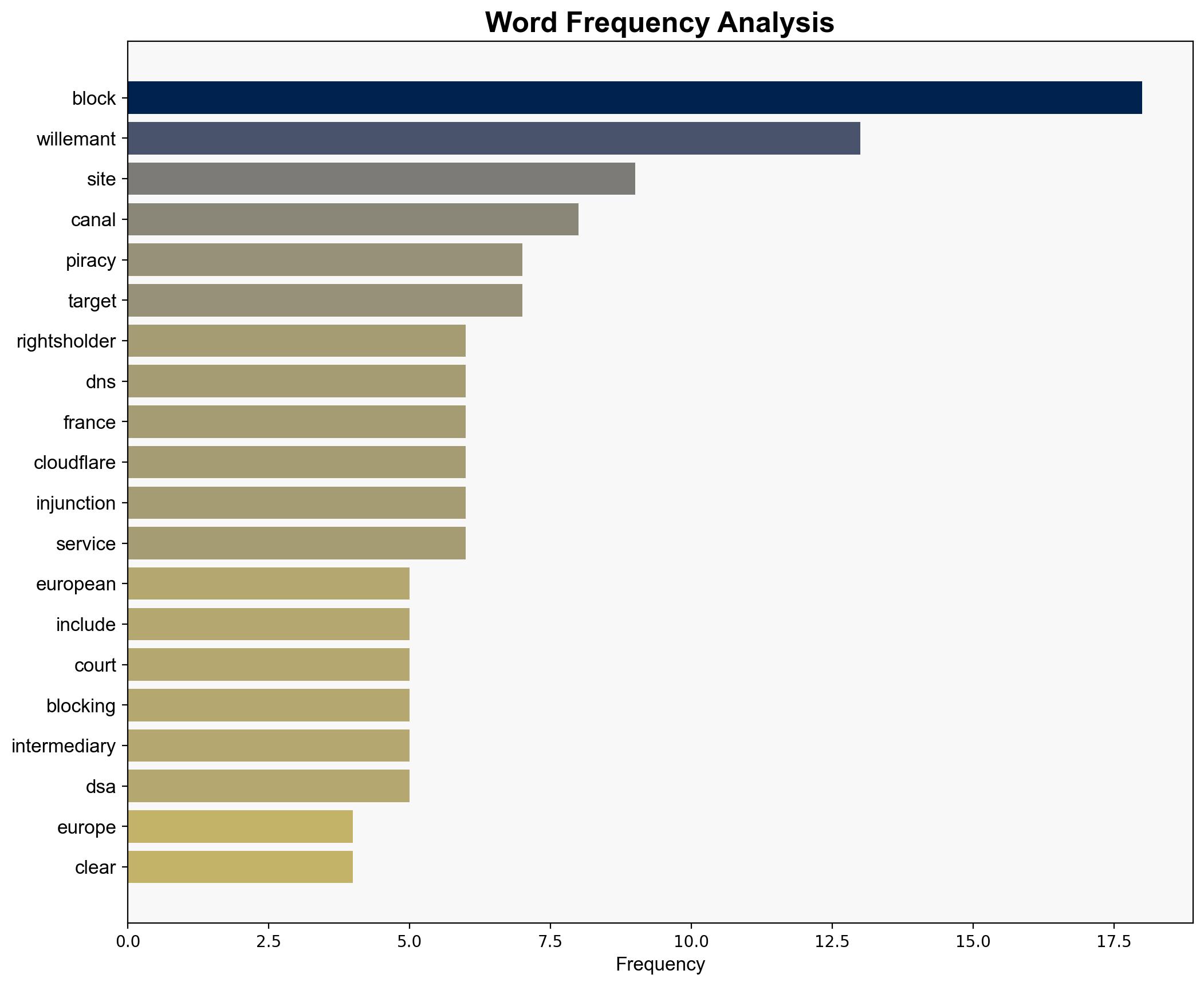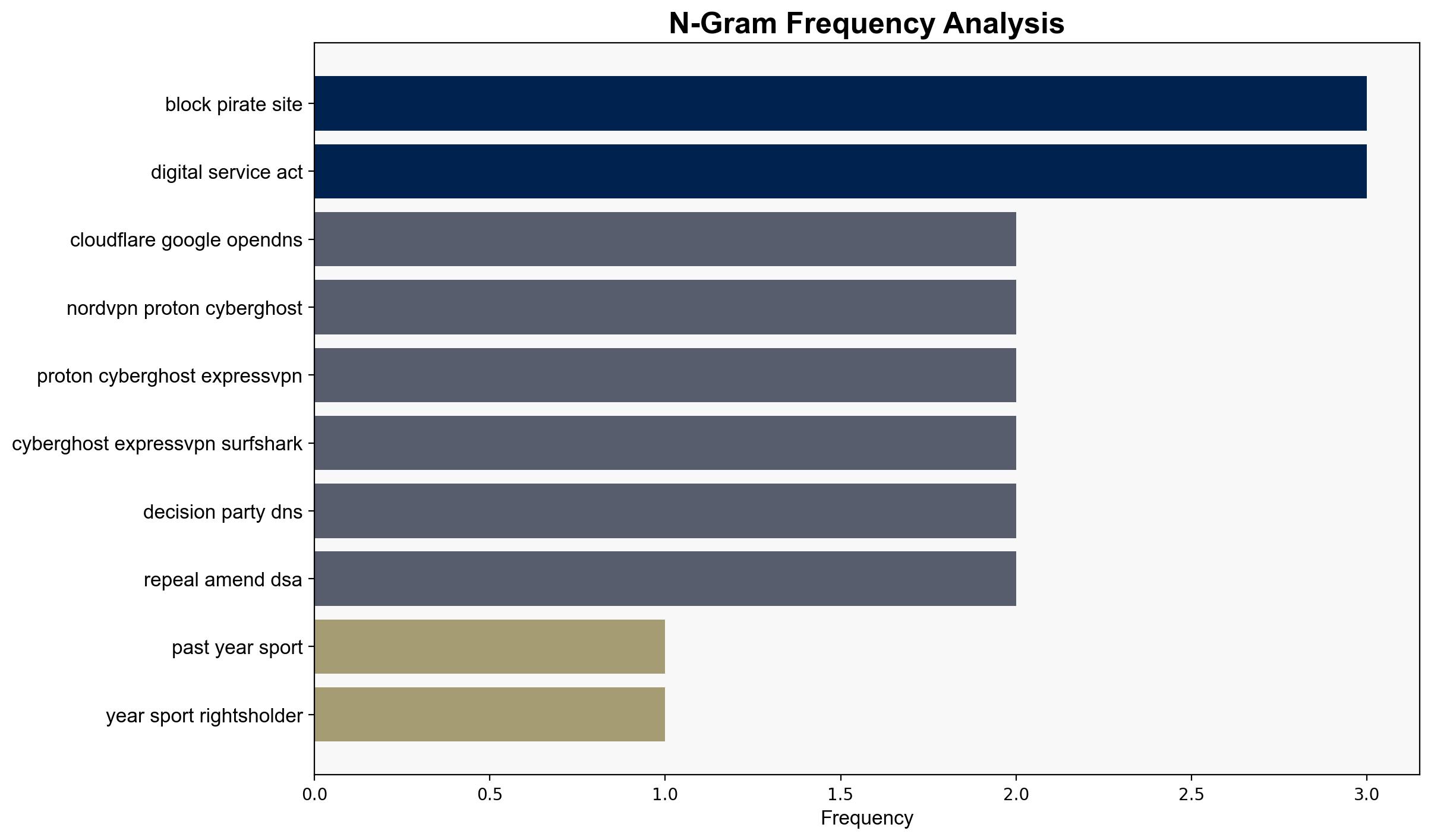Cloudflare Resists Piracy Blocks US Govt Opposes EU Co-Op Obligations – Torrentfreak.com
Published on: 2025-10-23
Intelligence Report: Cloudflare Resists Piracy Blocks US Govt Opposes EU Co-Op Obligations – Torrentfreak.com
1. BLUF (Bottom Line Up Front)
The most supported hypothesis is that the current legal and regulatory measures in the EU are insufficient to effectively combat online piracy, leading to increased pressure on intermediaries like Cloudflare and DNS providers. Confidence in this hypothesis is moderate due to the complexity of the legal landscape and the involvement of multiple stakeholders. Recommended action includes advocating for clearer, enforceable international standards and cooperation frameworks to address piracy more effectively.
2. Competing Hypotheses
1. **Hypothesis A**: The EU’s current approach to piracy, which relies on site blocking and takedown notices, is inadequate, prompting rights holders to seek more stringent legal measures and cooperation from intermediaries like Cloudflare.
2. **Hypothesis B**: The resistance from Cloudflare and similar entities is primarily due to concerns over privacy and operational feasibility, rather than the effectiveness of current anti-piracy measures.
Using ACH 2.0, Hypothesis A is better supported as the source indicates a pattern of escalating demands from rights holders and legal actions targeting intermediaries, suggesting dissatisfaction with existing measures.
3. Key Assumptions and Red Flags
– **Assumptions**: It is assumed that increased legal pressure will lead to more effective piracy reduction. Another assumption is that intermediaries have the capability to significantly impact piracy rates.
– **Red Flags**: Lack of clear data on the effectiveness of current measures and the actual impact of blocking on piracy rates. Potential bias in reports from stakeholders like Canal+.
– **Blind Spots**: The role of consumer behavior and technological circumvention methods (e.g., VPNs) is not fully addressed.
4. Implications and Strategic Risks
The ongoing legal battles and regulatory changes could lead to increased fragmentation of internet governance in Europe, with potential spillover effects on global internet freedom and privacy norms. Economic implications include potential costs for compliance and litigation for tech companies. Geopolitically, this could strain transatlantic relations if US-based companies are disproportionately targeted.
5. Recommendations and Outlook
- Advocate for international dialogue to harmonize anti-piracy efforts and standards.
- Encourage investment in technology that can balance piracy prevention with privacy protection.
- Scenario Projections:
- Best Case: Development of a cooperative framework that effectively reduces piracy without infringing on privacy rights.
- Worst Case: Escalation of legal conflicts leading to fragmented internet policies and reduced innovation.
- Most Likely: Continued legal pressure on intermediaries with incremental improvements in piracy reduction.
6. Key Individuals and Entities
– Richard Willemant
– Canal+
– Cloudflare
– Google
– OpenDNS
– NordVPN
– ProtonVPN
– CyberGhost
– ExpressVPN
– Surfshark
7. Thematic Tags
national security threats, cybersecurity, internet governance, intellectual property rights, regional focus





